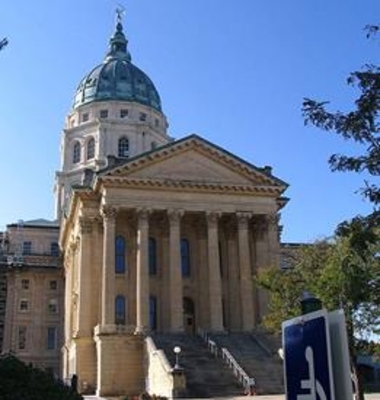Fiscal issues to drive Kansas lawmakers' session

Topeka, Kan. (AP) — Kansas lawmakers have a plateful of potentially ugly decisions ahead to close state budget shortfalls, but some of them and Republican Gov. Sam Brownback have bigger ambitions for the annual legislative session opening next month.
Senate President Susan Wagle said the budget problems are an opportunity to restructure state government. The Wichita Republican's list of big projects includes overhauling public school funding and the pension system for teachers and government workers.
Brownback has said he'll have school funding proposals and two top aides have proposed that Kansas study privatizing the pension system. The governor also is pursuing a 50-year water preservation plan.
But such ambitions — and the likely resulting debates — will play out against the backdrop of projected shortfalls totaling more than $710 million in the current budget and for the fiscal year beginning in July.
"It's going to be a tough one," House Majority Leader Jene Vickrey, a Louisburg Republican.
Legislators reconvene Jan. 12, the same day Brownback is inaugurated for a second term. Here's a look at the session, scheduled for 90 days.
GOP dominant
Republicans swept all statewide offices in this year's elections, as they did in 2010. The GOP holds majorities of 32-8 in the Senate and 97-28 in the House.
Balancing the budget
Brownback has outlined a plan for closing the projected $279 million shortfall in the state's current budget but hasn't specified how he wants to close the projected $436 million gap for the fiscal year beginning in July.
Wagle said legislators can't make decisions about the plan he's outlined for the current budget year until they see his other proposals.
Sen. Jim Denning, an Overland Park Republican serving on the budget-writing Ways and Means Committee, said the job is even bigger than the numbers suggest because "credit markets aren't going to tolerate" Kansas having no cash reserves.
"We're going to have to bring in more than we spend and build up a rainy-day fund," Denning said.
Taxes
During Brownback's first term, legislators aggressively cut personal income taxes to stimulate the economy. GOP senators are floating proposals to backtrack on some of the reductions, eliminate exemptions to the state sales tax and even raise alcohol, tobacco and gasoline taxes.
"Reality has finally taken hold," said Sen. Laura Kelly, of Topeka, the ranking Democrat on the Ways and Means Committee. "There's absolutely no way that we can cut our way out of this hole."
School funding
Top Republicans, including Wagle and Vickrey have described the formula for distributing state aid to public schools as "broken." But so far, GOP lawmakers have not been specific about perceived problems or possible proposals.
A three-judge panel in Shawnee County District Court is reviewing a lawsuit filed in 2010 by disgruntled parents and school districts and expects to rule soon on whether the state spends enough money on education.
Public pensions
A 2012 law stabilized the long-term financial health of the Kansas Public Employees Retirement System but didn't fulfill conservatives' goal of starting a 401(k)-style plan for new workers. Brownback's budget director and secretary of administration suggested studying whether the state should covert pension benefits to annuities run by private insurance companies.
Gay marriage
Decisions by the federal courts and the Kansas Supreme Court have cleared the way for same-sex marriages in some but not all of Kansas' 105 counties.
That's prompted some interest in reviving a proposal aimed at protecting churches, businesses and individuals from having to provide services or accommodations. But senators are still wary after last year blocking a House-passed bill that was criticized for being too broad.
Environmental issues
Brownback is moving forward with a 50-year water plan, and its more ambitious proposals include dredging state lakes to preserve their storage capacities and considering an aqueduct to western Kansas from the Missouri River in eastern Kansas.
The governor also has said he's open to phasing out a state law that requires wind and other renewable resources to account for 20 percent of utilities' peak capacity to generate electricity by 2020.
By John Hanna, AP Political Writer. Copyright 2014 The Associated Press. All rights reserved. This material may not be published, broadcast, rewritten or redistributed.
The Gayly – December 28, 2014 @ 11:20am





